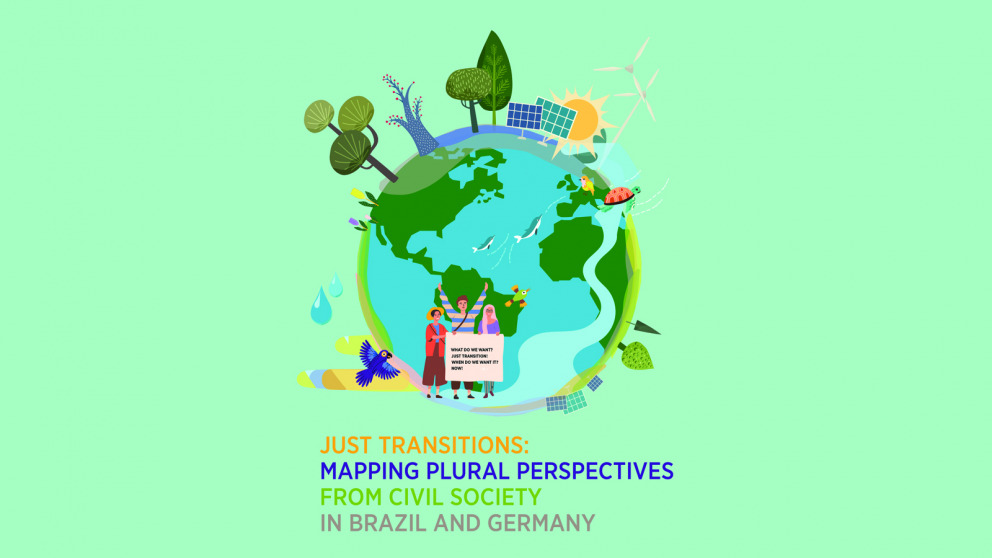What is a "Just Transition"? Perspectives from civil society in Brazil and Germany
05.12.2022

Available in English and Portuguese, “Just Transitions: Plural perspectives from civil society in Brazil and Germany” is one of the outcomes of the fellowship I pursued with the IASS from May 2021 to October 2022. The booklet is a descriptive mapping of NGOs, social movements, research groups, and other civil society organisations that are working on and for a just energy transition both in Brazil and Germany.
The publication is based on an online survey of various actors, which are categorized in terms of their geographical location, level of work, their constituencies and the movements with which they are affiliated. In some cases, their constituencies and affiliations were well defined; for others this information seemed irrelevant. The position of the actors both on the map and their affiliations with various constituencies and movements reveals how the people and interests reflected in each group shape their work and vision for a just transition in their respective contexts.
The main goal of this work is to reveal diverse takes on the nature of just energy transition processes in different contexts. The different positionalities of the groups translate into plural perspectives on just transitions, how they work to achieve their goals, the challenges they grapple with, and the key beneficiaries of transitions. And while this research does not seek to draw comparisons, I was able to identify some crosscutting issues among the actors mapped in Brazil (5) and Germany (7).
In particular, the survey shows that the energy transition, as a central component of a just transition, is discussed and decided primarily from an economic and technical point of view. This approach often neglects justice claims, such as the recognition of marginalized groups and the (re)distribution of costs and benefits of the transition process. Also, many of the actors place a strong emphasis on the need to benefit people and societal groups which were historically oppressed. For example, traditional community members living close to areas affected by energy industries, workers from energy industries, and women* of colour are some of the groups mentioned in the publication. Multiple actors in Germany and Brazil also remarked on the need to consider overlapping forms of oppression when planning the distribution of benefits from just energy transition processes.
The publication was made possible thanks to the supporting environment of the IASS Fellow Unit, the creative design and illustration skills of Sabine Zentek, the careful review and translation of Carlotta Nwajide, and the participation of the actors mapped in the survey.